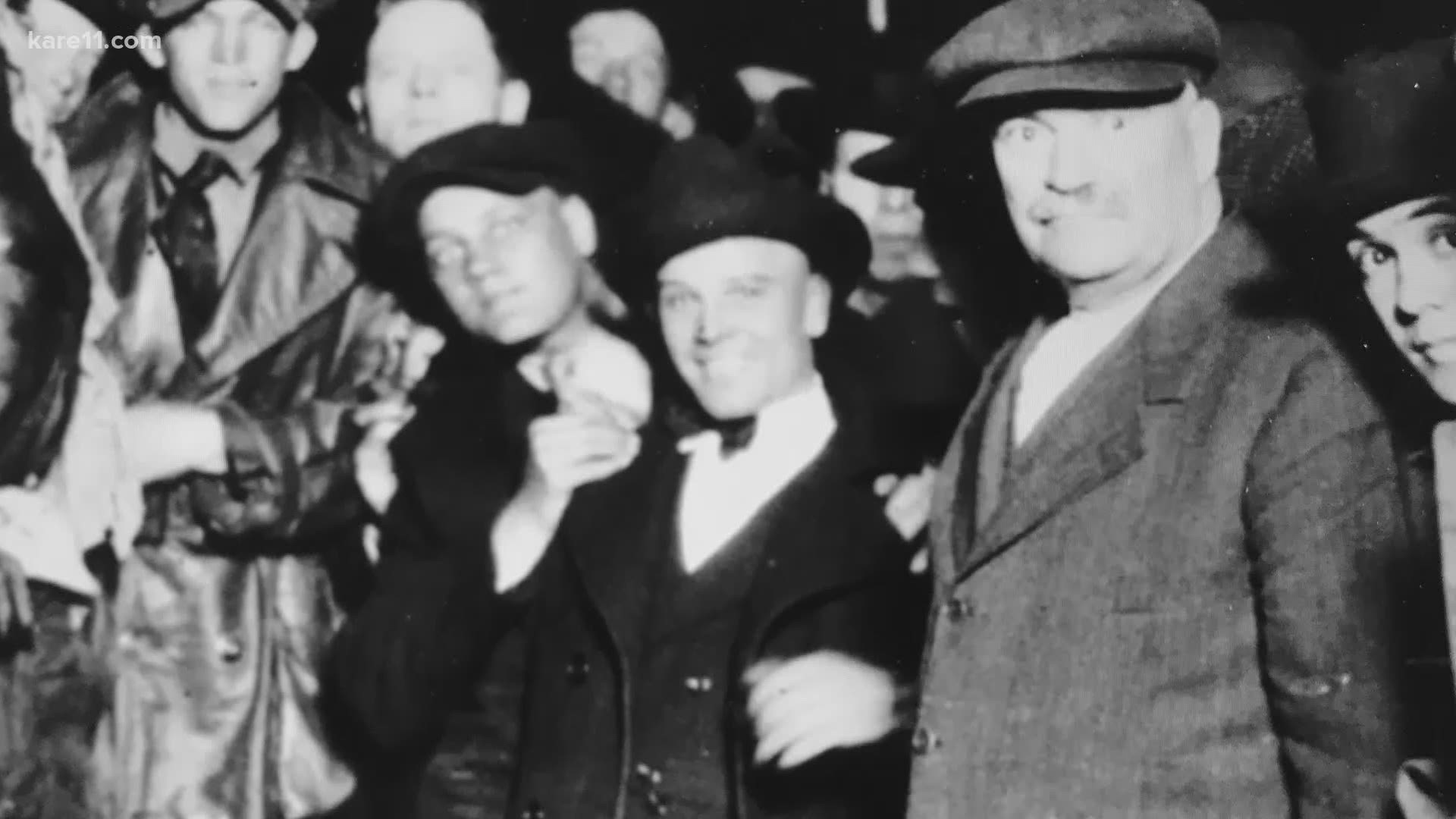MINNEAPOLIS — For those who feign surprise that Minnesota could be capable of a George Floyd moment – don’t.
It’s in our DNA.
An ugly example of the worst of us dates back exactly a century to Duluth.
One hundred years ago, on June 15, 1920, an angry mob broke into the city jail and dragged out three young black circus workers, accused with flimsy evidence, of raping a white woman.
On a streetlight pole, the mob lynched Elias Clayton, Elmer Jackson and Isaac McGhie.
“It’s like living history over and over again,” Bill Green, Augsburg University professor and former Minneapolis superintendent of schools, said.
Lynching had mostly been associated with southern states. Certainly, this couldn’t happen in enlightened Minnesota, people thought at the time.
“There’s a lot of denial that circled, and that to me seems to be a constant thread in how Minnesotans looked at race relations, I mean since the 19th century,” Green said.
Yet no one can deny the images: in 2020, the knee on George Floyd’s neck.
And, in 1920, the lynching.
A black and white photo of the lynching’s aftermath was reproduced and sold as postcards. In it, the bodies of two of the victims still hang on the streetlight, with a third lifeless on the ground. They are surrounded by a crowd of posing white men in clothes one might wear for a night on the town.
Hard as the photo is to look at, Bill Green believes Minnesotans ought to do exactly that.
“I’m more impacted by the smiles on the faces of the men who seem proud of their handiwork. It’s almost like they were sportsmen who’d gone off and fished; this is their catch,” Green said. “It’s that sense of dehumanization that’s powerful, and very scary to see.”
Don Clariette is a decedent of Elmer Jackson, one of the men who was Lynched, something no one in his family shared with him growing up.
He learned of his connection by chance as an adult.
“They just didn’t talk about it,” Clariette, a social worker from Minneapolis, said. He suspects the lynching was never discussed out of “shame, the horribleness of it.”
Likewise, Warren Read was tracing his family’s roots when he learned his great grandfather was a leader of the lynching mob, one of three men who served time in prison - not for the lynching, but for inciting a riot.
“He was apparently driving around Duluth picking up people and loading them on the back of his truck and stopped by the hardware store to get the rope that was used in the lynching,” Read said from his home in Washington State.
“I was really, ashamed. I was very embarrassed,” Read continued.
His family never spoke of it either.
Green said silence is part of the problem. “Looking at our history is the only way we can look at ourselves in a clear way,” Green said. “Without that history we live with illusions, we live with cultural lies, we live in the ignorance that nothing is wrong.”
Then, left unresolved, racism rears its head again. And again. And again.
“As much as we like to think we’ve come so far since 100 years ago, we really haven’t,” Read said. The associate school principal went on to write a book about the lynching and his coming to grips with his great grandfather’s role in it. The book’s title: The Lyncher in Me.
Like Green, Clariette has tried to find context for the lynching in the events of today.
“We can do better. We have to get beyond this,” Clariette said.
Read and Clariette have made peace with their dubious connection and now consider themselves friends.
Together they’ve paid homage at the memorial in Duluth where Clayton, Jackson and McGhie have been given back some of the dignity taken from them 100 years ago.
A century after the lynching, Green finds himself feeling some optimism in the wake of Floyd’s death. “I do get a sense that people are trying to make sense of this. I’m seeing it on the streets, I’m seeing people trying to find the language to explain things that they’ve never really had to talk about,” he said.
Two shameful acts, separated by 100 years, and again people are asking, “When will it end?”
“We don’t want to take too seriously the notion of us being an exceptional state. We were remarkably unexceptional because this thing happened,” Green said referring to the lynching. “But it’s what we do with that knowledge that determines whether or not we are exceptional. This is sort of an opportunity for us to prove ourselves.”
Note: if you would like to read more about the Duluth lynchings and their aftermath, click here for additional information provided by the Minnesota Historical Society.

